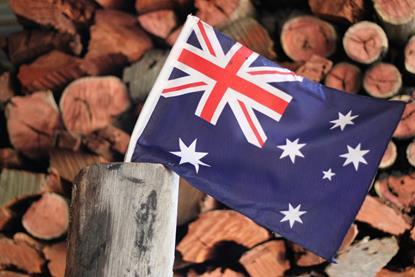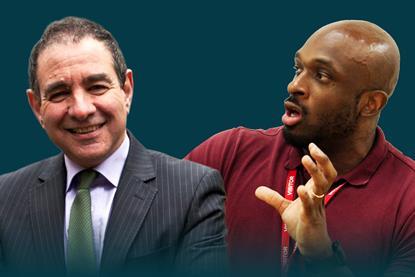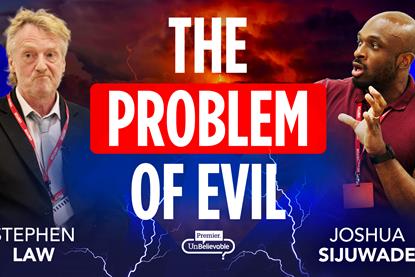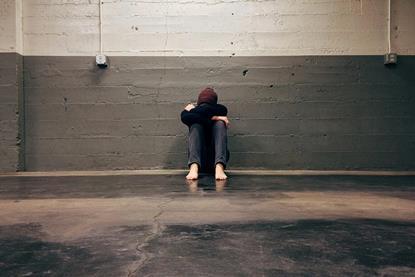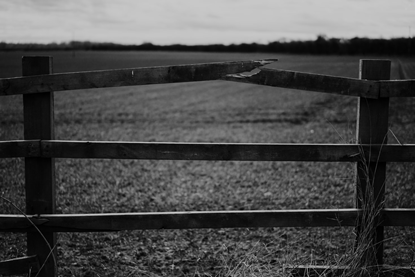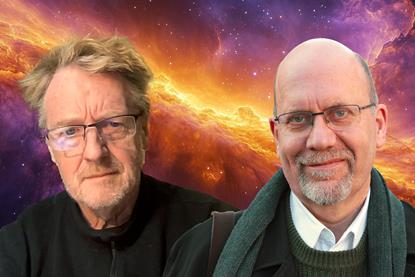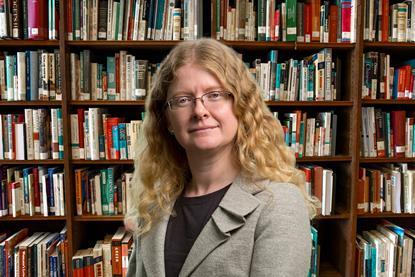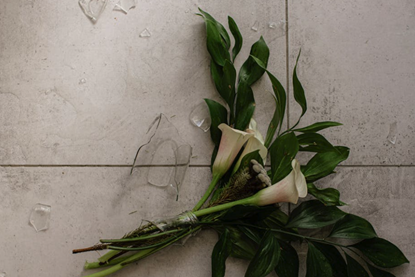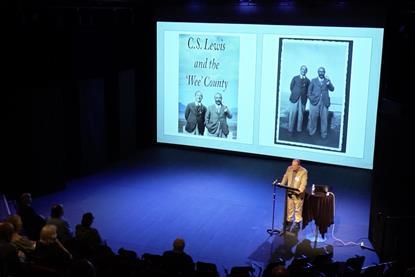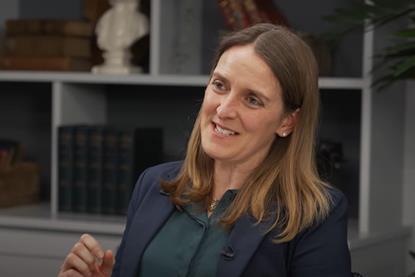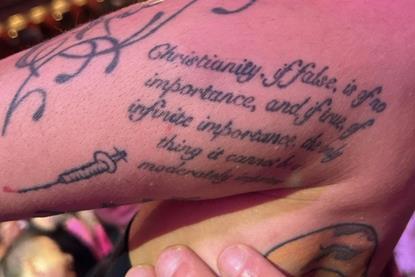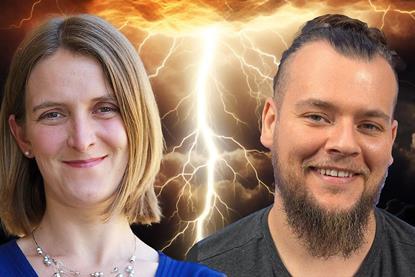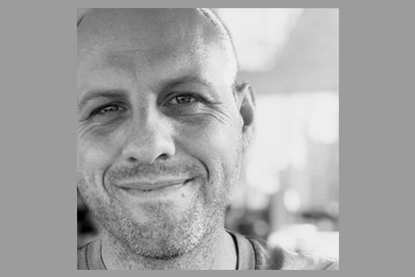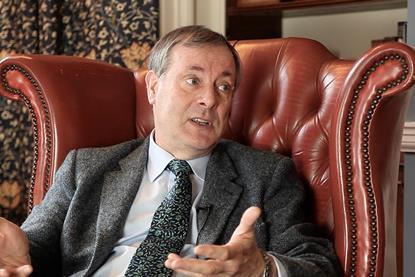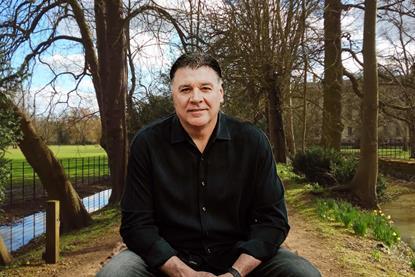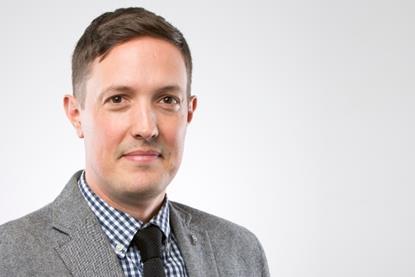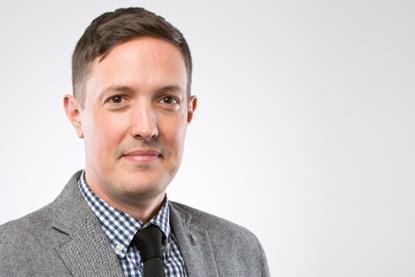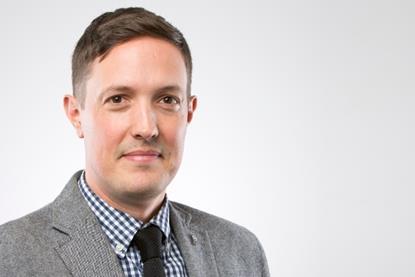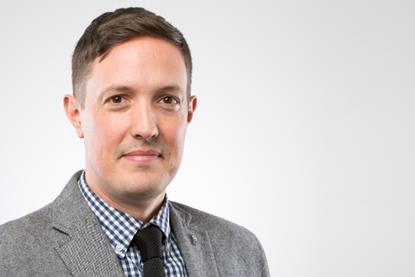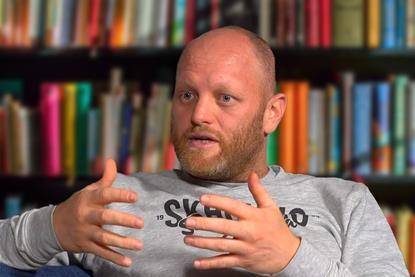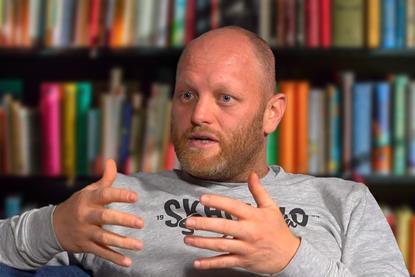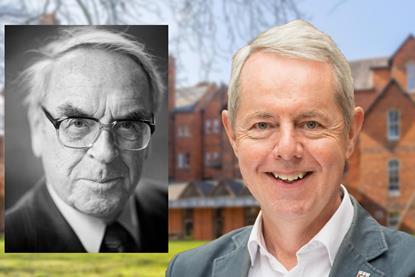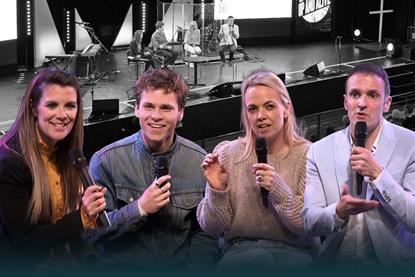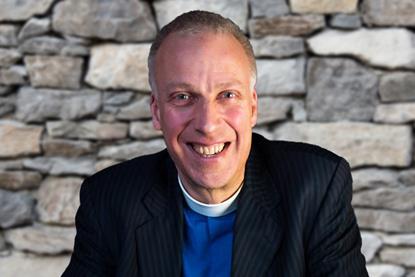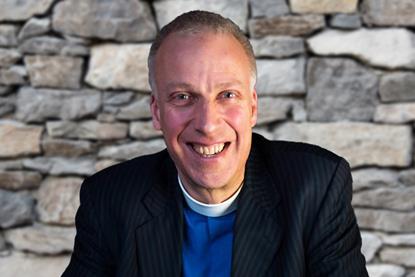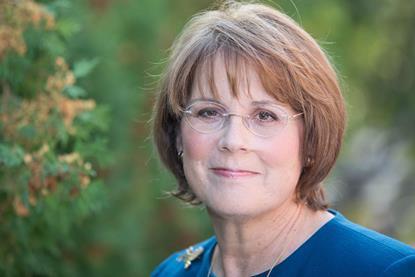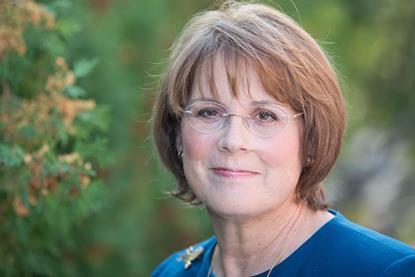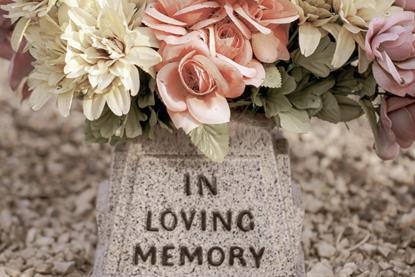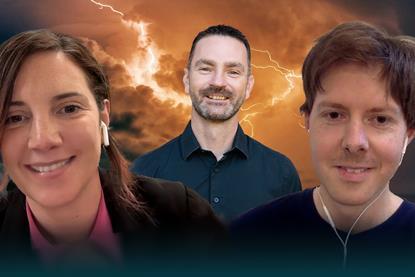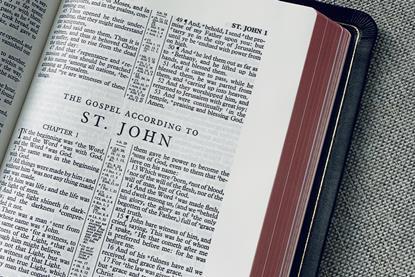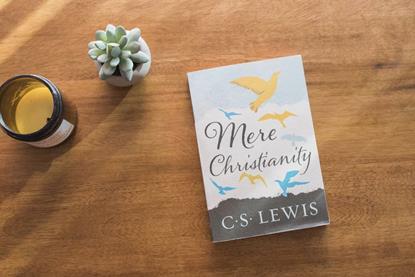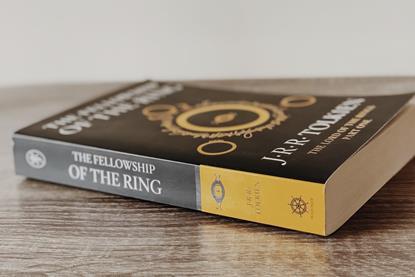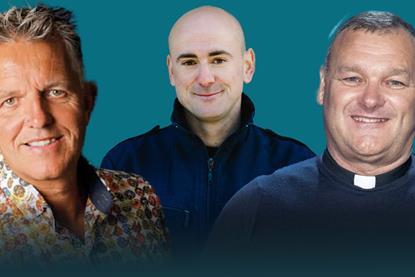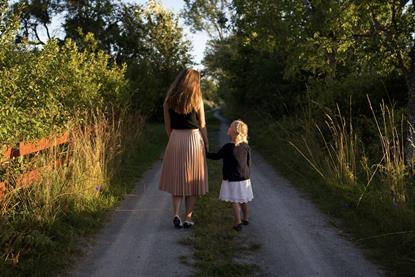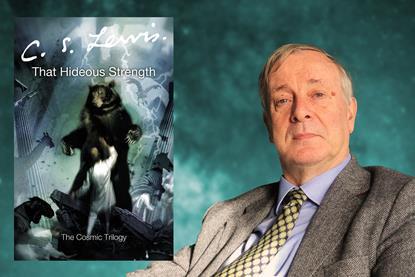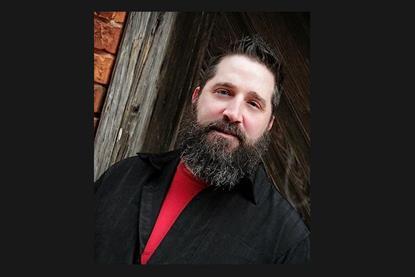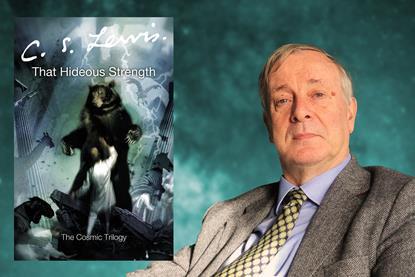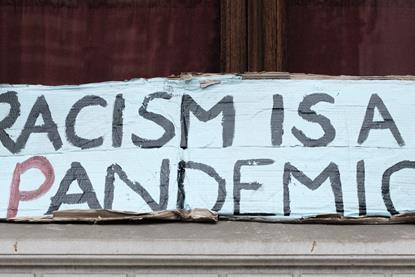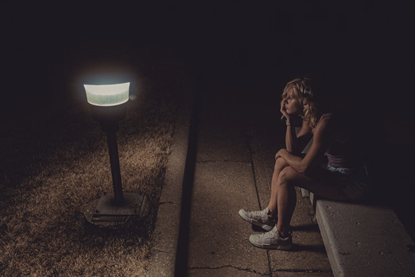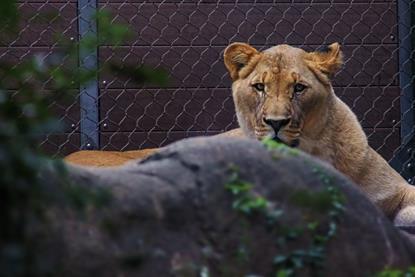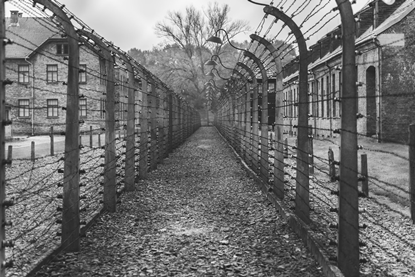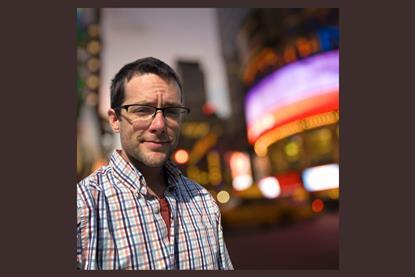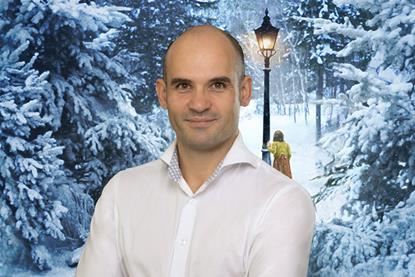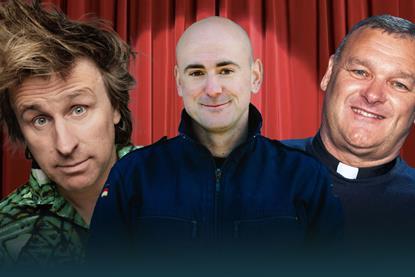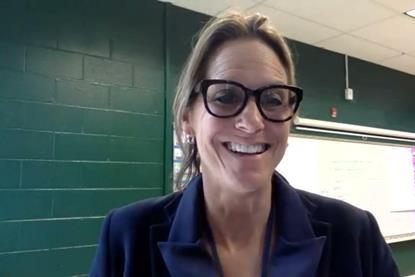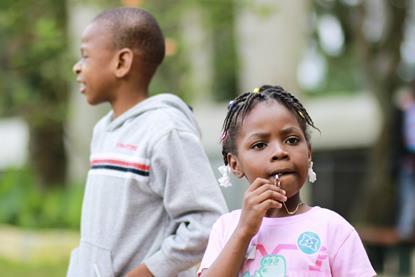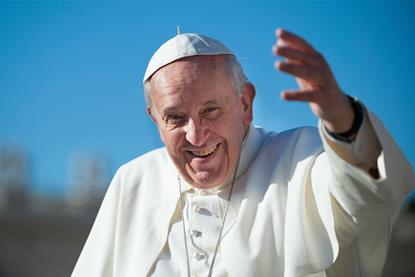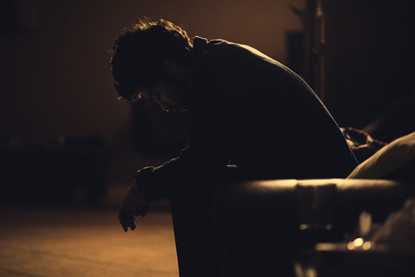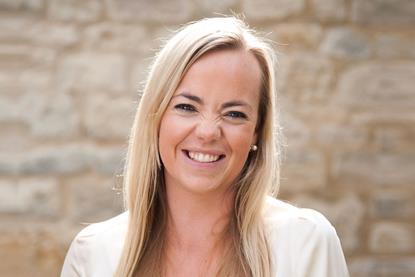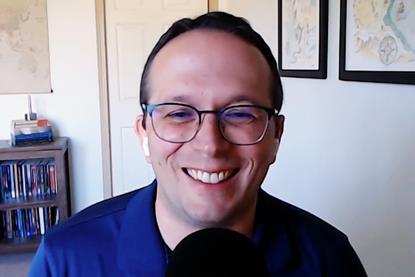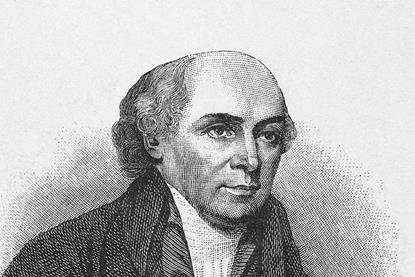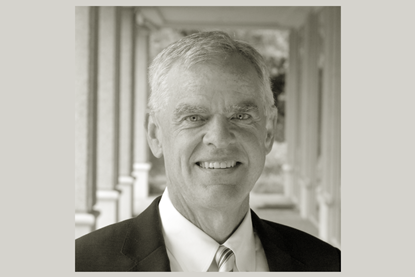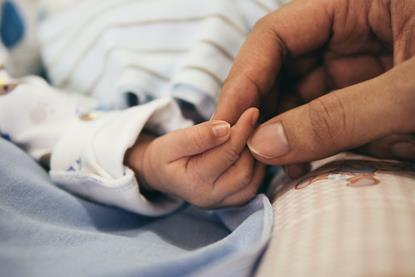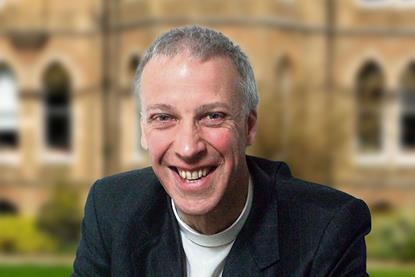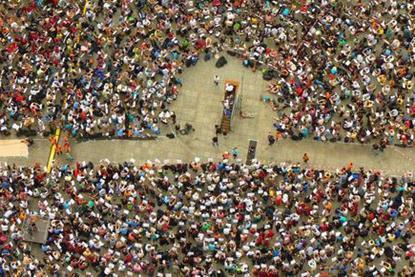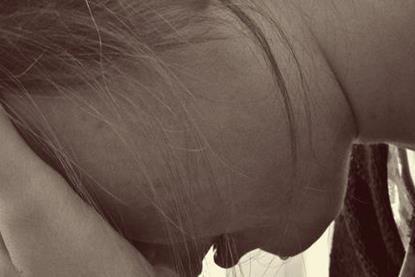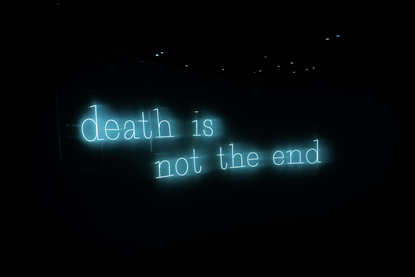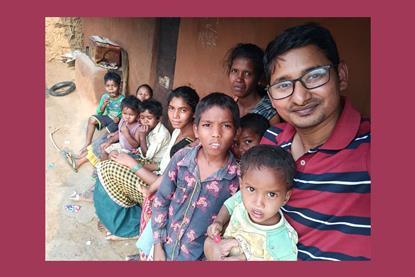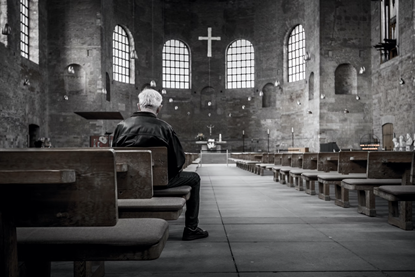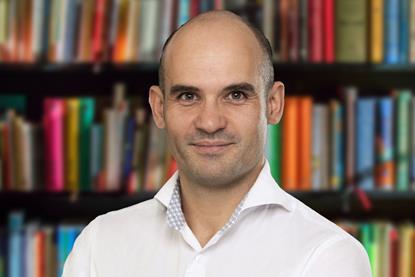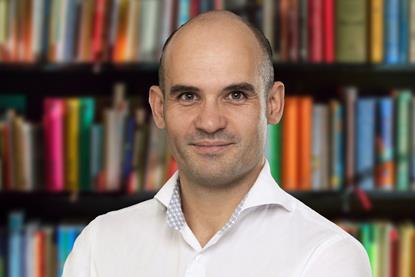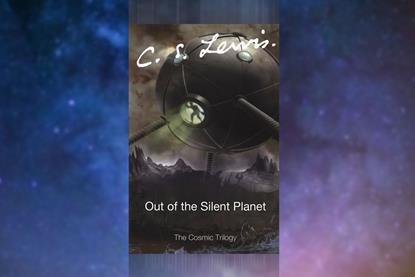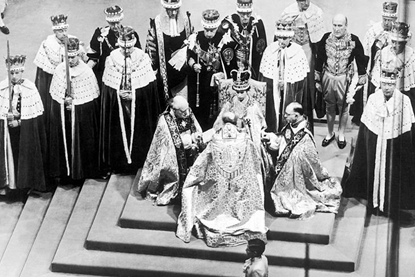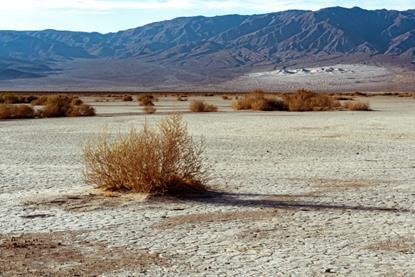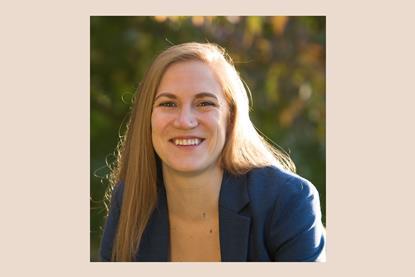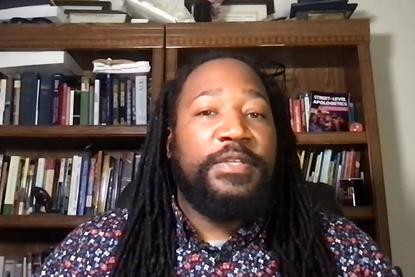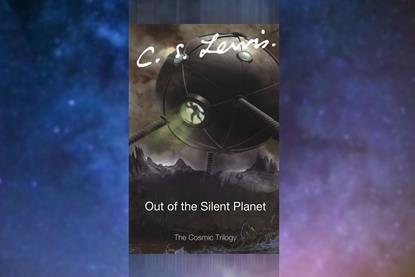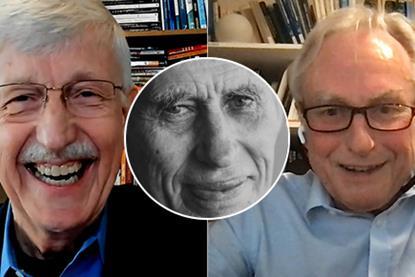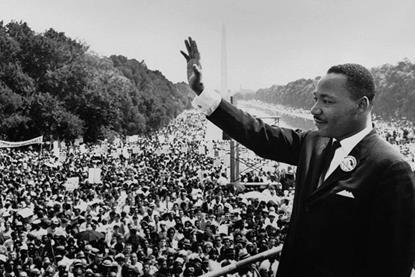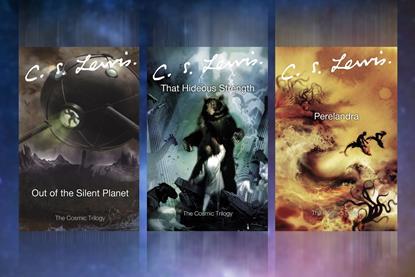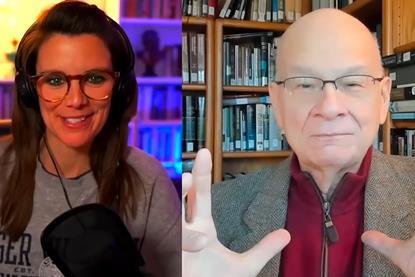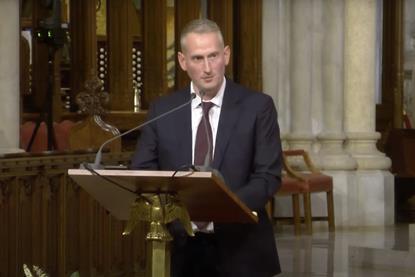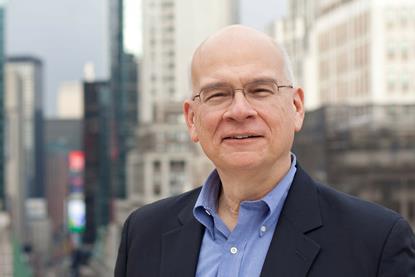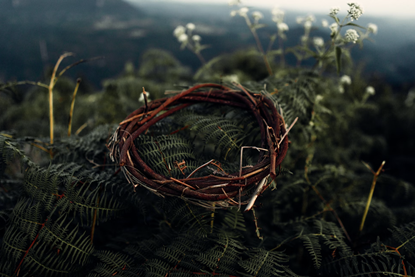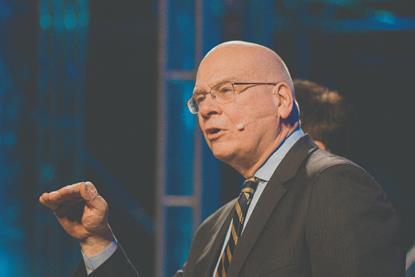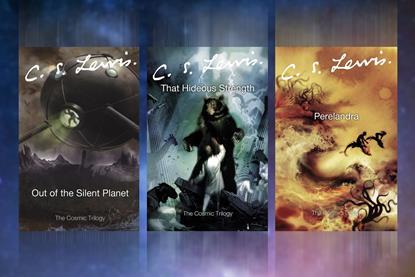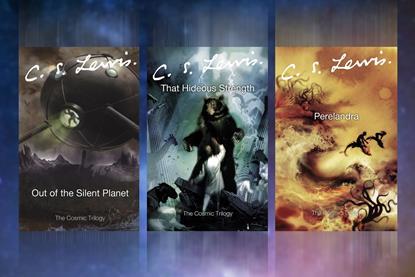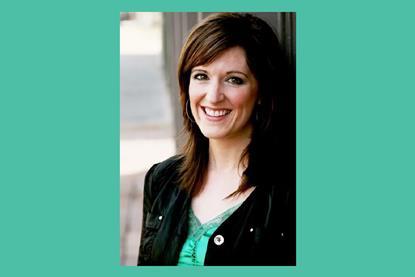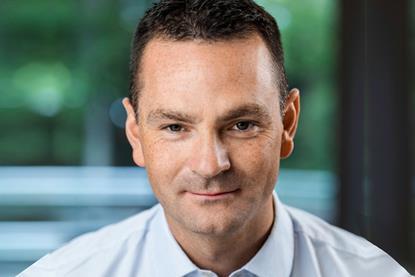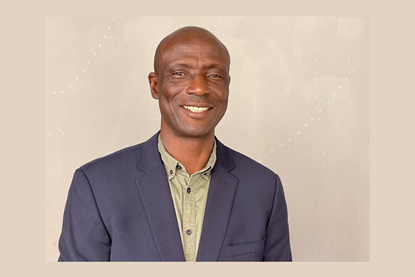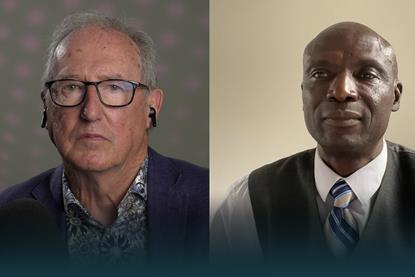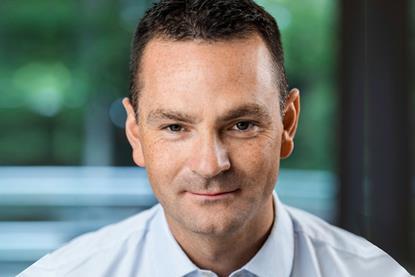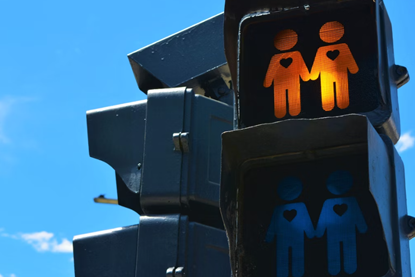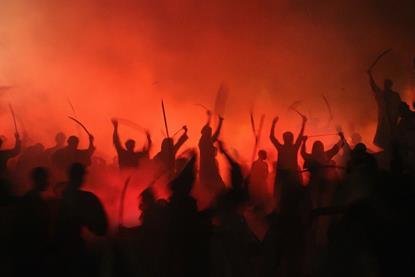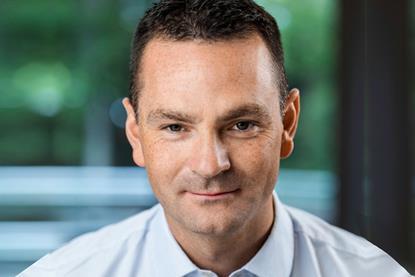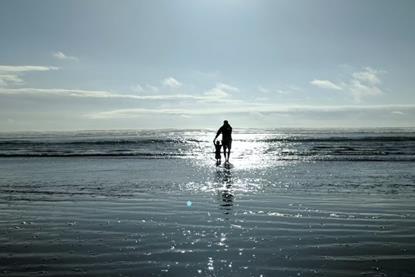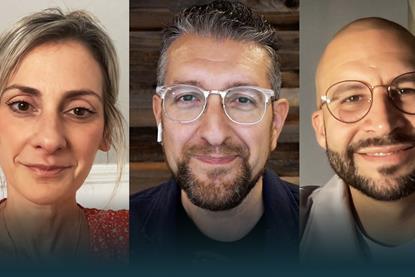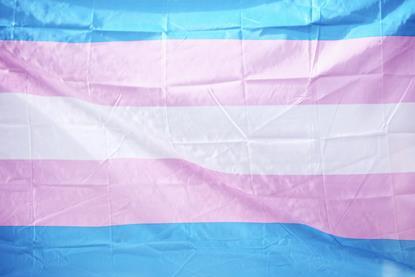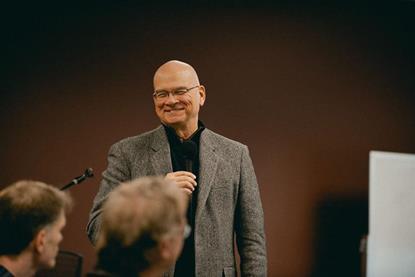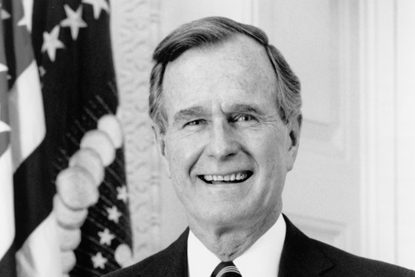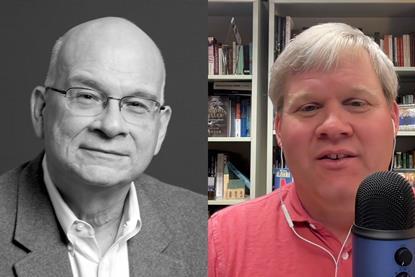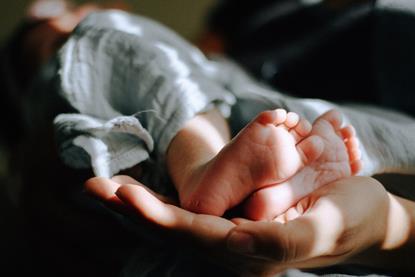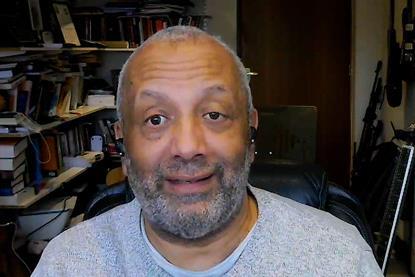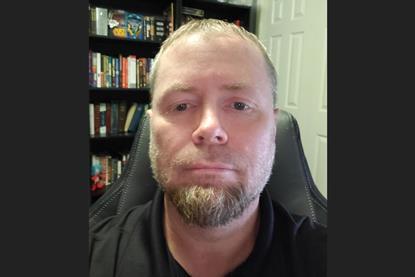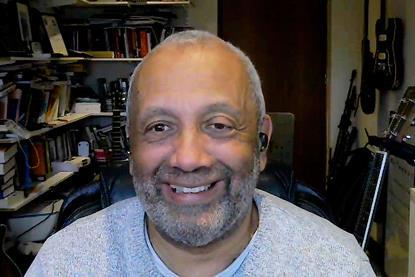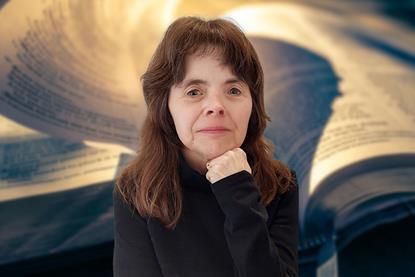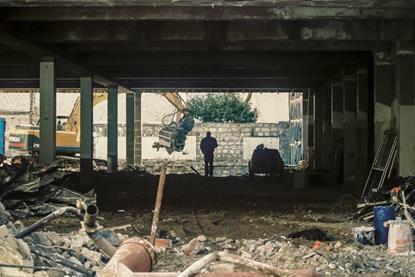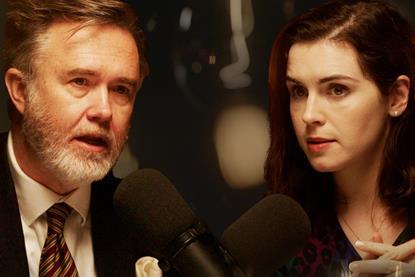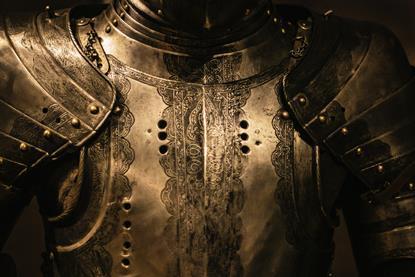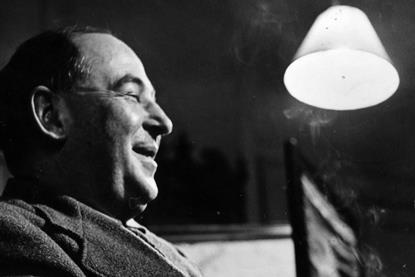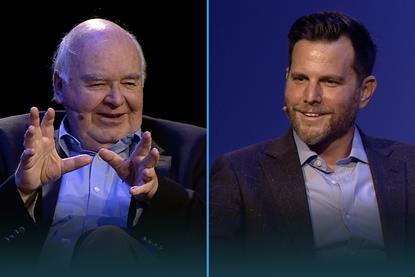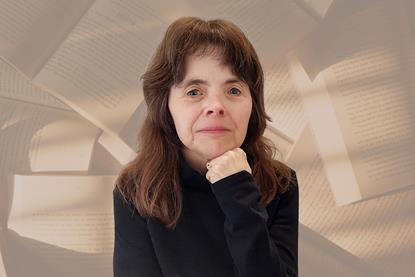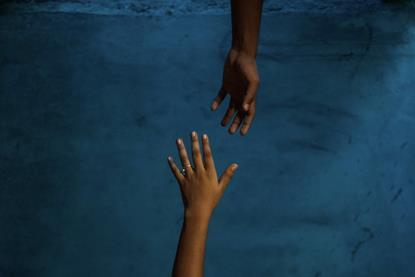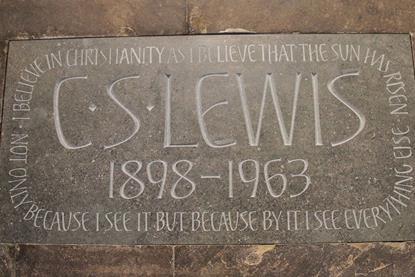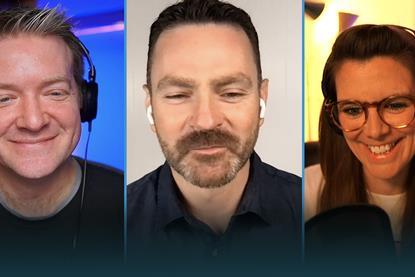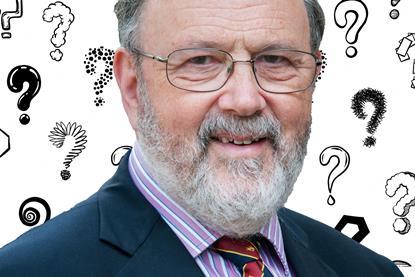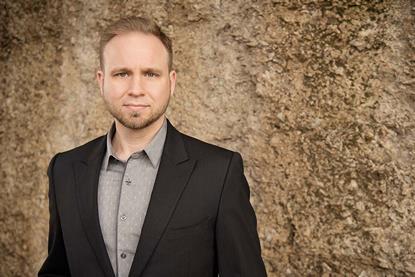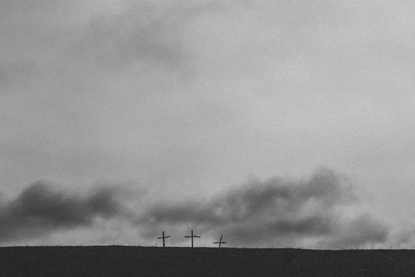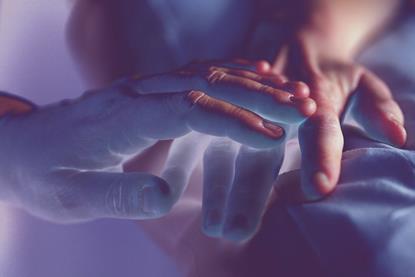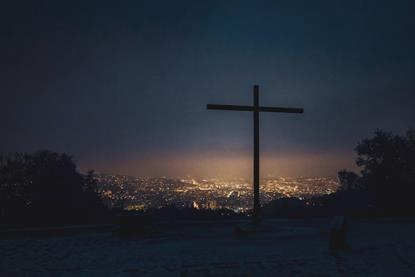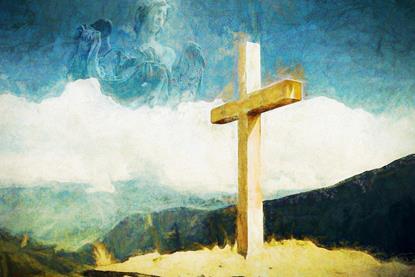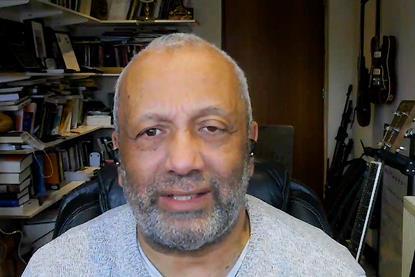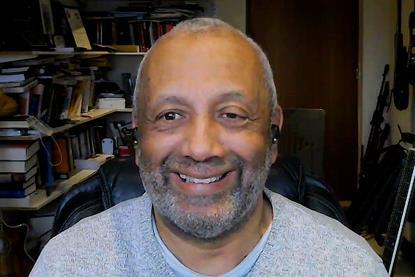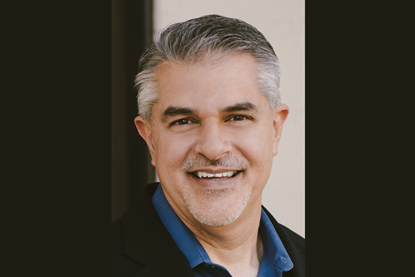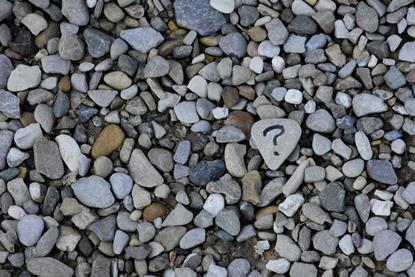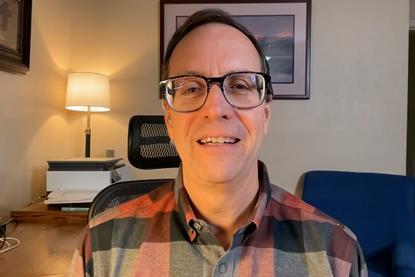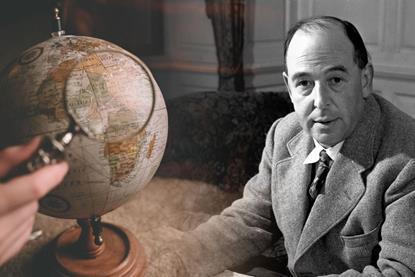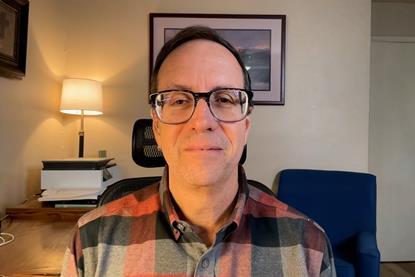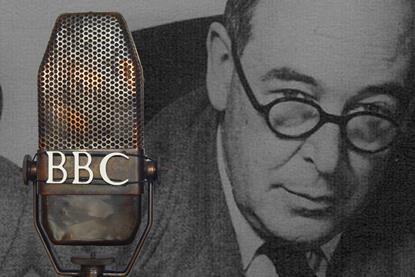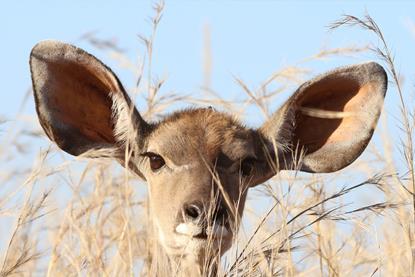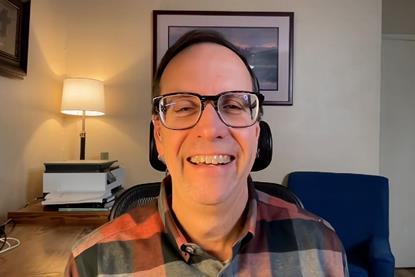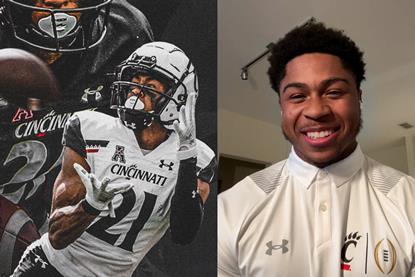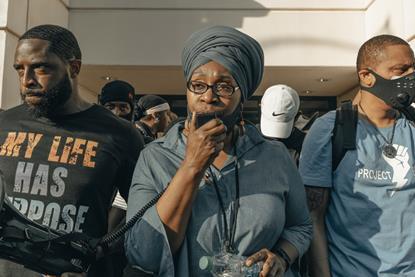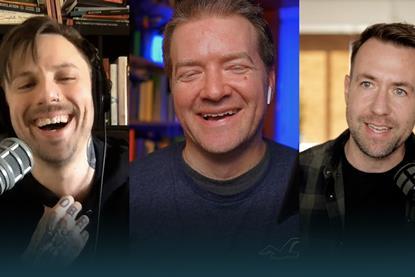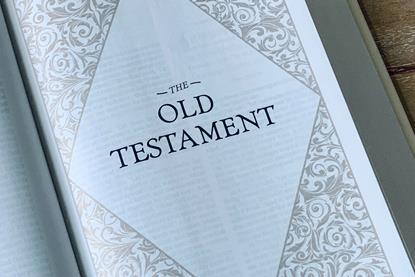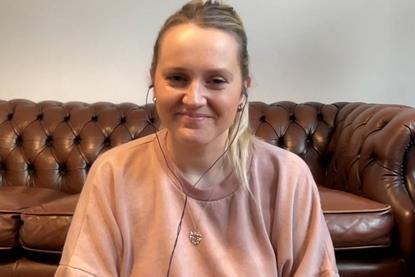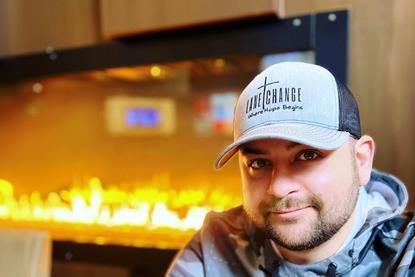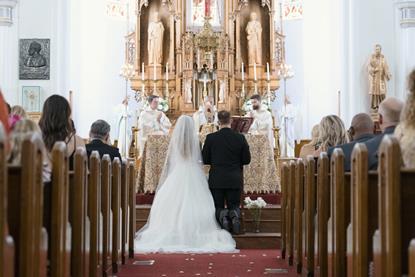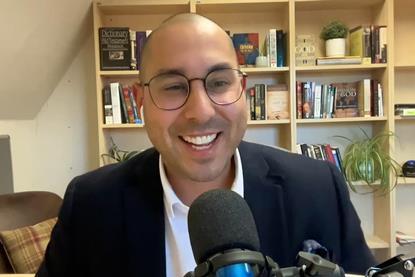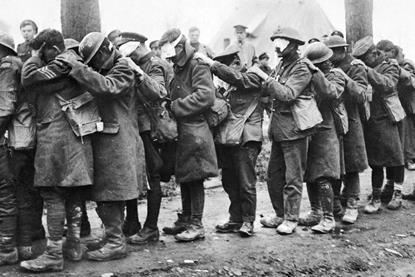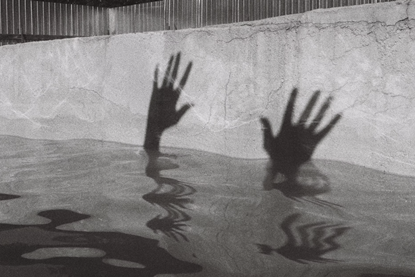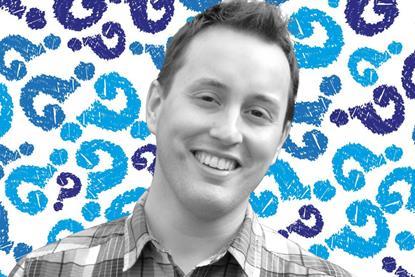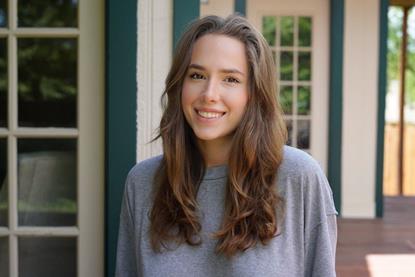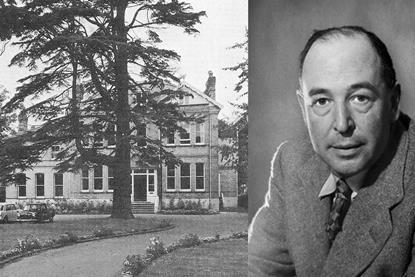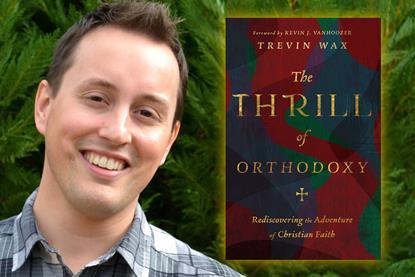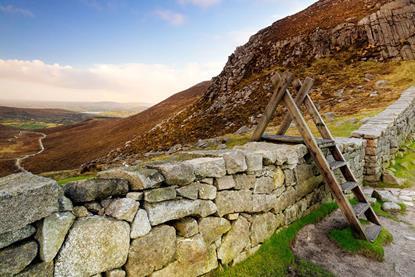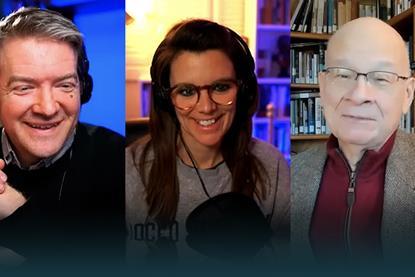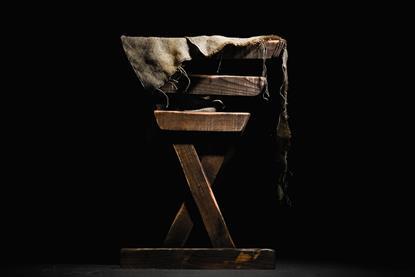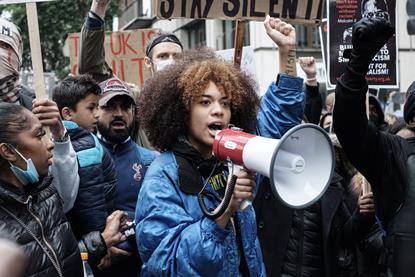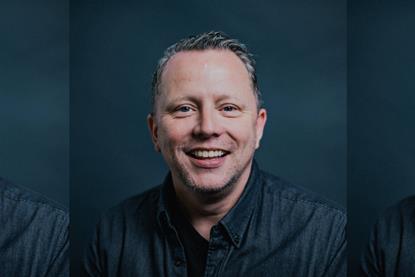Suffering
What the new year cannot fix
As the New Year begins, Australia is still reckoning with violence that defies easy explanation. Beyond politics and policy lies a deeper question about evil and whether it can truly be overcome.
The Sanity Of Belief - Can God Explain Everything? Joshua Sijuwade vs Julius Weinberg hosted by Andy Kind
Is belief in God rational, or is it something no reasonable person should accept?
Why did a good God create earthquakes and volcanoes? Suffering, creation and natural evil, with Prof Bob White
In this episode, Prof Bob White - renowned geophysicist and former director of the Faraday Institute - tackles some of the toughest questions at the intersection of faith and science. Why do earthquakes, volcanoes, and genetic diseases exist in a world made by a good God? Is suffering in nature a sign of a broken creation, or is there a deeper purpose behind natural disasters? Join us as we explore suffering, creation, and the challenge of “natural evil.”
Why does a ‘Good God’ allow Suffering and Evil? Dr Joshua Sijuwade vs Dr Stephen Law
In this edition of Unbelievable?, Christian philosopher Dr. Joshua Sijuwade debates atheist philosopher Dr. Stephen Law on whether the reality of suffering undermines belief in God - or whether there are good reasons a loving God might allow it.
The Problem of Pain: Why Every Worldview Must Answer the Question of Suffering
Atheists often use the problem of pain and suffering to challenge the existence of God, but this issue isn’t exclusive to Christianity. Every worldview must reckon with life’s harshest realities and not only confront suffering but also offer a meaningful response to it.
Why does God allow pain and suffering? A series on the most googled questions
In the third article of this seven-part series, Bruce Miller and Ruth Jackson explore this challenging question, drawing on wisdom from faith leaders and the Christian belief in a God who suffers with us.
Is the Problem of Suffering the strongest argument against God? David Robertson vs Stephen Law hosted by Andy Kind
Can the reality of suffering disprove a good God? Oxford Philosopher Dr. Stephen Law and Christian minister Rev. David Robertson debate the problem of evil, the evil God hypothesis, and whether suffering is evidence for or against theism.
The CS Lewis Podcast #201 Holly Ordway: Tolkien, suffering and the problem of evil
Ahead of Tolkien Reading Day on 25th March, Dr Holly Ordway, author of Tolkien’s Faith, explores the contrasting spiritual journeys of J.R.R. Tolkien and CS Lewis—both of whom experienced the profound early loss of their mothers.
How Should Christians Respond to Sexual Abuse and Scandals in the Church?
Author Joel Furches considers practical principles and actions in response to abuse in the Church
The CS Lewis Podcast #192 Warnie, alcoholism and Country Louth
Lewis’ life was not a bed of roses. However, he was still able to find joy in dark situations. For example, discovering beauty and friendship in Ireland’s Country Louth while his brother Warnie was being nursed there for alcohol addiction. Rev Paul Clayton-Lea, author of CS Lewis and the Wee County shares some fascinating personal stories from the Lewis brothers in a talk given at the CS Lewis Group at Ulster’s spring mini symposium.
Repeated failing a polygraph test led a physics academic to God
In this discussion on whether there is conflict between religion and science, both parties are most interested in moral debates
Earthquakes and cancer: Why is God’s good world so full of suffering? with Sharon Dirckx
Christians normally explain away human-caused suffering by pointing to God giving us free will, and our sinful natures using that to harm ourselves and each other. But what about all the things entirely out of our control which cause so much sadness, from natural disasters to genetic diseases?
Is happiness enough, or do we seek purpose and fulfilment?
Why suffering, instead of being a reason to turn us away from God, can be the way that we find him
The CS Lewis Podcast #178 Scott Tuohy: A Lewis quotation changed my life
When scaffolder Scott Tuohy heard a quotation from CS Lewis while attending an Alpha course, he was so profoundly moved by it, he got the quote tattooed on his bicep the next day. His life has never been the same since. Here, he shares his story with Ruth Jackson.
#122 Mirjam Schilling: Why did God create mosquitoes?
Virologist and theologian Dr Mirjam Schilling answers questions asked by a live audience at Holy Trinity Church, Aylesbury. This show was recorded in partnership with Aylesbury Vale Youth For Christ.
Assisted suicide: Euthanasia tourism takes off in the US amid fresh push to change law in Britain
Today we pick up a number of stories and updates in the conversation around assisted suicide. Long since legal in a growing number of states in the US, a new report has detailed how things are liberalising further. Some states now permit non-residents to cross state lines solely to die, creating a new market in euthanasia tourism for those living in less liberal parts of America.
A Christian explanation for Natural Evil from the Dirckx vs Woodford debates
An apologetic for natural disasters using the Genesis creation story
Out of darkness: How dabbling in demonology led to discovering Jesus
Former atheist Chris Adam experienced a difficult, chaotic childhood and was drawn to witchcraft and demonology to gain control over his life. Researcher Jana Harmon shares how his life changed dramatically after reading the Bible
The CS Lewis Podcast #170 Alister McGrath: Is Lewis a helpful spiritual mentor?
How did CS Lewis live out his Christian faith? What practical tools or approaches can he offer to inform our spiritual practices? How can Lewis help us work out our vocation? Does he have any advice for those experiencing doubt? Professor Alister McGrath explores how we can use Lewis as a resource for our Christian life.
Unapologetic #116 Nicola Morrison: A trip to church saved my life
Nicola Morrison, an editor and former BBC reporter, has experienced many highs and lows in her personal and professional life. She shares her struggles with childhood trauma, mental health difficulties and career setbacks. Following a failed attempt to take her own life, Nicola visited a church, which changed the trajectory of her life forever. You can read more of her story in Victory is My Name.
The CS Lewis Podcast #169 James Emery White: Culture, translation and COVID-19
How did CS Lewis translate Christianity for ordinary people? What would he say to our post-Christian culture? Can Lewis help with evangelism? In what ways did people apply his ideas to the COVID-19 pandemic? Pastor, author and theologian Dr James Emery White explores how we can draw on Lewis in our modern context.
The CS Lewis Podcast #168 Philip Tallon: What if God isn’t good?
Did Lewis want to rewrite some of his earlier work on suffering in light of his own experience of pain and loss? Did Lewis doubt the existence of God or question his character during these times? What words of encouragement would Lewis give to those in the throes of suffering? Dr Philip Tallon explores A Grief Observed and The Problem of Pain. He also shares how to help younger readers engage with Lewis.
The CS Lewis Podcast #167 Philip Tallon: How do hell, the Fall and beauty fit into Lewis’ theodicy?
How does Lewis perceive the Fall? Is he able to reconcile it with an evolutionary model? Where does the cross feature in The Problem of Pain? What did Lewis think of hell? In what ways does Lewis help us to recognise beauty and aesthetics in our discussions around theodicy? We continue our conversation with Dr Philip Tallon.
The CS Lewis Podcast #166 Philip Tallon: Is pain a megaphone?
Can pain ever be good for us? What about children with cancer? How do we account for animal suffering? Will our pets be in heaven? Does our theology of heaven impact our thoughts around suffering? Dr Philip Tallon shares his thoughts about Lewis’ The Problem of Pain.
The CS Lewis Podcast #165 Philip Tallon: Is pain a problem?
Dr Philip Tallon, Associate Professor of Theology and Dean of The School of Christian Thought at Houston Christian University, unpacks one of Lewis’ earliest work of apologetics The Problem of Pain. What are the critiques of this book and can any of these challenges be overcome?
Unapologetic #111: Johan Erasmus: Is there more to life than atheism?
Afrikaner pastor Johan Erasmus shares the second half of his story. Why did the New Atheists’ arguments lose their appeal? How did the Bible become less embarrassing? Where does he turn with his doubts? In what ways does Johan’s faith inform his passion for racial reconciliation? Read more in Coming To Faith Through Dawkins.
The CS Lewis Podcast #164 Johan Erasmus: Coming to faith via Dawkins and Lewis
Following the death of his father as a child, Afrikaner pastor Johan Erasmus struggled to find a place where he could ask sceptical questions about faith, God and the Universe. During this time he discovered CS Lewis, but also Richard Dawkins, Sam Harris and Christopher Hitchens.
What will heaven be like?
Writer Steve Schramm explores important questions about the afterlife
Unapologetic #109 Justyn Terry: Jürgen Moltmann on suffering, politics and hope
Does God suffer? How does a “crucified God” speak to our pain? Where can we find hope? How should we engage with politics?
If God is the creator and doesn’t make mistakes, what about trans people? (and other questions) Sexuality, Miracles, and Evolution: Tackling tough questions
If God is the creator and doesn’t make mistakes, what about trans people? 👀 Are miracles real and can they ever be medically verified? 🔥 In today’s episode we’re taking you to the second half of the recording of a live event we call NO QUESTION OFF LIMITS which we hosted with Spring Harvest last month.
Unapologetic #108 Michael Lloyd: Why did God create wasps?
Why are our prayers not answered? Where does the cross fit into the problem of suffering? Why did God create creatures like mosquitoes, poisonous snakes and wasps? Does God always get his way? Can good ever come out of suffering? Rev Dr Michael Lloyd, author of Cafe Theology, continues his discussion about evil and suffering.
Unapologetic #107 Michael Lloyd: Why does evil exist?
Rev Dr Michael Lloyd, author of Cafe Theology, explores a number of Christian responses to evil and suffering. Which theories are the most intellectually, emotionally and pastorally consistent and satisfying? We also look at the doctrine of the fall. Why is it significant? Is it compatible with evolution? Was there a fall of angelic beings as well as humanity?
Unapologetic #106 Kathy Keller: Why does God allow suffering?
Kathy Keller is no stranger to suffering, so how is she able to attest to the goodness of God in the midst of great pain? How does she respond to unanswered prayer? Does she have any advice about coping with anxiety? Is it possible to hold on to hope during tragedy?
Unapologetic #104 Kathy Keller: Life, marriage and death
As we approach the one year anniversary of apologist Tim Keller’s death on May 19th, we caught up with his wife Kathy Keller. Are there any stories about Tim that have particularly encouraged her family in recent months? How did a sick dog lead her to Jesus as a child? What marriage advice would she offer to those just starting out on their journey?
How should Christians respond to euthanasia?
The UK Government are discussing legislation to potentially allow assisted dying for terminally ill adults. Here, apologist Clinton Wilcox shares some of the issues raised by euthanasia
Matters of Life & Death: Assisted dying in Scotland: A bad law but also an inevitable one?
A new law has been proposed in the Scottish Parliament which would allow terminally ill people to request doctors assist them in committing suicide. Is euthanasia the next great social leap forward in the inexorable onward march of progress?
Unbelievable? Is there as much reason to believe in an evil God as a good God? Max Baker-Hytch vs Asha Lancaster-Thomas hosted by Vince Vitale
In the discussion on the plausibility of an all-evil God versus an all-good God, Dr. Max Baker-Hytch delivered a compelling argument that encapsulated the essence of the debate. He highlighted the inherent scepticism that arises when considering the ‘evil God’ hypothesis, pointing out that if such a malevolent deity were to exist, it would provide ample reason to doubt the reliability of our cognitive faculties.
Is the Gospel of John anti-Jewish?
Lay minister Dr Peter Harris explores the truth of the recent claim made by Rev Michael Cohen that John’s Gospel is anti-Judaist
What is Taoism and how does it differ from Christianity?
Apologist Joel Furches explores this ancient Chinese religion
Why did Jesus die? CS Lewis, redemption and the atonement
Pastor and author Dan Salter explores the image-based atonement theory through an imagined conversation with CS Lewis about the birth, death and resurrection of Jesus
What did Holy Week mean to JRR Tolkien?
Dr Holly Ordway, author of Tolkien’s Faith shares how a memorial cross spoke powerfully to Tolkien of Jesus’ death and resurrection
The psychological toll of witnessing animal cruelty online
Dustin Kieschnick and Katie Lawlor, on behalf of the Oxford Centre for Animal Ethics, share their thoughts on the impact of trauma and social media
Unapologetic #95 Jay Y Kim: Doubt and deconstruction
Jay Y Kim, a pastor in Silicon Valley and author of multiple books including Listen, Listen, Speak, shares his experience of losing and rediscovering his faith. What are some of the reasons people leave the Church or aren’t even remotely interested in the first place? What should we do with our doubts? How do we ensure everyone feels welcome?
Unbelievable? Where is God to be found when you are told your cancer is terminal? Steve Legg, Allan Finnegan and Andy Kind
Where is God to be found when facing the no-joke reality of a terminal diagnosis for cancer? Two comedians, who are both Christians, are facing just this challenge. This discussion between Steve Legg and Allan Finnegan hosted by Andy Kind will transform the way you think about terminal illness. This uplifting show explores why two men in the prime of life feel closer to God than before they received their devastating diagnoses.
Matters of Life & Death: How can Christian doctors approach medical-assisted dying (euthanasia)?
Medical Assistance in Dying: Judicial activism, suicidal ideation, reasons to stay alive, and Hippocrates’ successful medical practice
Unbelievable? If God exists why does he allow suffering? The most googled questions with Bruce Miller, Ruth Jackson & Billy Hallowell
In the second of two shows on the most googled questions about God, Ruth Jackson continues her conversation with Bruce Miller, author of The 7 Big Questions: Searching for God, Truth, and Purpose.
How can churches support people who find Mother’s Day difficult? 7 tips from makeup artist to the stars Hannah Martin
As we approach Mother’s Day, Hannah Martin, who has made up some of the world’s most famous faces, shares her thoughts on how to support those who may be struggling
The CS Lewis Podcast #146 That Hideous Strength: How do we resist evil?
In this final episode on The Space Trilogy, Alister McGrath finishes his discussion on That Hideous Strength, looking particularly at how evil emerges and how we stop technology, such as AI and nuclear weapons, getting out of control.
Hope in despair: How a militant atheist encountered God
Dave Glander’s broken childhood was one of the many factors that led to his staunch atheism. However, his worldview was dramatically shaken in a moment of desperation. Jana Harmon shares his story
Unbelievable? The most googled questions with Bruce Miller: Does life have a purpose? Is Christianity true?
Bruce Miller, author of The 7 Big Questions: Searching for God, Truth, and Purpose, tackles two huge questions: is Christianity too narrow and is Jesus really God? He also explores whether Jesus really rose from the dead.
The CS Lewis Podcast #144 That Hideous Strength: What would a godless world look like?
Alister McGrath continues to discuss the final book of CS Lewis’ science fiction trilogy. What are Lewis’ thoughts on education? Was he anti-modern? Does the abolition of God necessarily lead to the abolition of humanity?
Racial justice: How an immigrant Jesus brings hope
11th February marks Racial Justice Sunday in the UK. Clare Williams, founder of Real Questions, looks at why we must challenge both external injustices and the flaws within our own hearts, and how the cross of Jesus brings us hope
Abortion through the eyes of a neonatal physician
Discussions have recently taken place in the UK Parliament around various aspects of the Criminal Justice Bill, including the potential decriminalisation of abortion. Erik Strandness, who has over 20 years’ experience in neonatal medicine, reflects on the thorny issue of abortion
Unbelievable? Should abortion be decriminalised? Lois McLatchie vs Ellie Lee hosted by Andy Kind
This week in the UK, discussions are taking place in Parliament around various aspects of the Criminal Justice Bill. One of the most contentious areas is around a couple of tabled amendments that would remove offences that make it illegal for a woman to perform a self-abortion at any point through to birth.
Depressed, anxious and tired? You’re suffering from Zoochosis
The demands of modern life have become a self-imposed prison. Erik Strandness reflects on the discussion between Alan Noble and Kelly Kapic on Unbelievable?, and the psychosis of maintaining our “self-made” image instead of the one God has given us.
Never again: Why we desperately need Holocaust Memorial Day
To mark Holocaust Memorial Day on 27th January, Steve Maltz from Saltshakers – a Christian ministry witnessing to the Jewish roots of the Christian faith – shares his thoughts about why this day is more important than ever in light of current events
From Bartimeus to Ed Sheeran: Mental health, stigma and the gospel
January can be a particularly difficult time for those facing mental health struggles. Rev Prebendary Dr Isabelle Hamley, co-author of Struggling With God, explores how Jesus’ response to Bartimeus can help inform our thinking in this area
Making sense of reality: How an atheist philosopher discovered Jesus via paganism
The horrific terror attack of 9/11 cemented in Patrick Flynn’s mind that religion was not only untrue and irrelevant, but also troublesome. Jana Harmon explores how rigorous study and existential questions led Pat to change his mind
Why Christianity could trend in 2024
As we embark on a new year, author Drew Cordell reflects on the relevance of God in Western society
The CS Lewis Podcast #138 Phil Knox: Why the Narnia Chronicles make me cry
”Daddy, why are you crying? It’s only a lion!” Evangelist Phil Knox shares his experience of reading The Narnia Chronicles with his young son and the impact these books have had on his own life. Why is The Lion, the Witch and the Wardrobe significant for so many people? And how does The Horse and his Boy depict the Christian story so profoundly?
Unbelievable? Can Christians do comedy? with Milton Jones, Allan Finnegan and Andy Kind
In this episode, top British comedian and writer Milton Jones and Baptist minister, comedian and semi-finalist of Britain’s Got Talent, Allan Finnegan, offer a captivating behind-the-scenes glimpse into their world.
A brief encounter: How a successful professional on Capitol Hill moved from secular humanism to Christianity
Jana Harmon shares the story of former sceptic Susan Leonard who saw no need for faith until a personal tragedy led to a profound encounter with God
Matters of Life & Death: Q&A: Should we welcome the coming wave of anti-obesity drugs, and what’s at stake in the argument over the 14-day limit on embryo research?
Our year-end Q&A episode as we discuss hot topics: Wegovy, the controversial anti-obesity drug and the debate on extending the 14-day limit on human embryo research
Is it time for Christians to ditch Christmas?
Author Drew Cordell ponders what it might mean for those who believe “Jesus is the reason for the season” to abandon 25th December all together
Matters of Life & Death: Palliative care, Dogs and Guinness on the wards, complicated grief, DNAR discussions, and resisting assisted dying
A couple of years ago we interviewed Sarah Foot, a Christian palliative care doctor. She spoke about how she treats the physical, mental, social and even spiritual needs of those who are dying, the Christian foundations of the discipline, and what impact her profession has on her.
Ask NT Wright Anything #196 Pain and suffering Part 2 (Classic)
From the archives: In this second of a two-part episode series looking at the question of Suffering, Tom shares his thoughts on heart-breaking pastoral questions from listeners around how to respond to grief and mental health.
Matters of Life & Death: Q&A: Why are we ignoring rising death rates among poorer ethnic minority children, and will the flesh-and-blood girlfriend become a thing of the past?
New official data in England reveals an alarming and much under-reported phenomenon – significant increases in mortality among children from the most deprived communities over the last two years.
Pope Francis on why we need hope
The Pope shares his thoughts on how we can be people of hope in a world that desperately needs it
Ask NT Wright Anything #195 Pain and suffering Part 1 (Classic)
From the archives: In this first episode looking at the question of Suffering, Tom shares his thoughts on the difficult questions listeners have around issues such as dementia, death, the global pandemic and whether God himself suffers.
Can the Bible teach us anything about depression?
Rico Villanueva, Langham Partnership’s regional commissioning editor for Asia, shares how studying the psalms of lament have helped him with his bouts of depression
Unapologetic #78 Amy Orr-Ewing: Why are women central to the Christian story?
Dr Amy Orr-Ewing, author of Mary’s Voice, explores the context of Mary, mother of Jesus, and looks at why women play such a significant role in Christianity. Plus, what is the Magnificat, why is it so revolutionary? And how is it relevant today?
The CS Lewis Podcast #131 David Bates: CS Lewis Reading Day
David Bates and his team at Pints With Jack have helped establish a day to celebrate CS Lewis and his work. His fellow Inkling, JRR Tolkien, already has a special reading day, but “why should the Tolkien nerds have all the fun?”! Listen in to hear why David thinks Lewis is still relevant today and how you can get involved with the inaugural CS Lewis Reading Day on Lewis’ birthday - November 29th.
At the going down of the sun and in the morning, should we remember them?
As we approach Remembrance Day in the UK and Veterans Day in the US, Joel Furches explores whether we should be praying for our military
Cobbler turned missionary: How William Carey brought hope to the hopeless
Author Mark Roques explores the life of Baptist preacher William Carey
I don’t need God: How tragedy compelled an atheist to rethink his disbelief
Athiest Warren Prehmus had no need for God. However, when personal tragedy struck, he began to question his presuppositions and explore Christianity. Researcher Jana Harmon shares his story
Matters of Life & Death: Baby loss 1: Elsie’s story, one in five pregnancies, names missing from the family tree, and the power of ultrasound
We have just finished Baby Loss Awareness Week here in the UK. While the event is not hugely well known, it is indicative of an enormous cultural shift in recent decades around how society talks about miscarriage and stillbirth.
Unapologetic #74 Michael Lloyd: Should we all study theology?
Rev Dr Michael Lloyd, author of Cafe Theology, shares his story including why he got ordained, how he ended up in academia and why he changed his mind on the ordination of women. He also discusses how to assess the veracity of doctrines and why he believes everyone should study theology.
Ask NT Wright Anything #189 Brexit, Abortion, Race and Critical Theory (Classic)
From the archives: Tom tackles a variety of questions on ‘hot button’ political issues that have been sent in, including the place of faith in politics, abortion, racism and ‘critical theory’
Ask NT Wright Anything #188 Jean Vanier and when leaders let us down (Classic)
From 2020: In the wake of the news that L’Arche founder Jean Vanier was responsible for sexual abuse of women during his ministry, Tom Wright responded to questions from listeners let down by leaders and the church. Be part of the Ask NT Wright Anything live show in London at Unbelievable?
Are humans better than animals?
Apologist Nathan Rittenhouse shares his thoughts on Psalm 8 and its ramifications
What can we learn from near-death experiences?
Journalist Heather Tomlinson continues her exploration on near-death experiences in light of a recent Big Conversation on this topic
Transformed: How a despised Indian child became an evangelist
Jehu Limma, founder of HopeGiving Foundation, shares his remarkable journey from “untouchable” to helping children out of poverty
Does deconstruction signal the death of faith?
Erik Strandness reflects on deconstruction and reconstruction following an Unbelievable show on this topic
Unapologetic #70 Phil Knox: Dealing with objections
Why do many people deem religion irrelevant? What are some of the biggest objections to belief in God? Why are droves of young people leaving the Church? Evangelist Phil Knox shares some of his thoughts about these big topics and gives some tips on how to share your faith effectively.
Near-death experiences: 5 stories of changed lives
Journalist Heather Tomlinson highlights a number of people whose lives were transformed following a near-death experience
Unapologetic #69 Phil Knox: Does evangelism matter?
Evangelist Phil Knox, author of Story Bearer and The Best of Friends, shares some of his story with Ruth Jackson, speaking about the impact of his dad’s death at a young age. Plus, they discuss why evangelism matters and how we can share our story and be a “good news person in a bad news world”.
The CS Lewis Podcast #122 Out of the Silent Planet: Love, sex and intuition
Alister McGrath continues to explore Out of the Silent Planet, looking at some of CS Lewis’ language around love and sex. He also looks at the different life forms on Malacandra and the distinction between rational and non-rational life forms.
The late Queen (1926-2022): Reflections from a bishop a year after her death
Retired bishop Richard Harries shares his thoughts about Queen Elizabeth II, who died a year ago on 8th September 2022
What is Buddhism and how does it differ from Christianity?
Apologist Joel Furches explores the central beliefs of this popular Eastern religion, and compares it to Hinduism and Christianity
Matters of Life & Death: Lucy Letby: Murder on the neonatal ward, Munchausen’s by proxy, doctors versus nurses, and the banality of evil
Britain has been gripped by horror by the recent conviction of a neonatal nurse called Lucy Letby, who murdered seven premature babies and attempted to kill six others at the hospital where she worked. In this episode we discuss this horrifying and tragic story and whether Letby could or should have been stopped earlier.
Is there more to life than mere matter?
Dr Erik Strandness explores the relationship between the soul, mind, brain, body and spirit following a recent Big Conversation about near death experiences
Do near death experiences contradict Christian belief and doctrine?
Journalist Heather Tomlinson explores near death experiences and theology in light of a recent Big Conversation on this topic
From radical atheist to Christian via rigorous intellectual study
Former atheist, Dr Stefani Ruper, was intellectually convinced of secular atheism, but found that it lacked substantive answers for her life. More than 13 years of scholarly pursuit of truth led her to choose belief in God. Jana Harmon shares her story
Unapologetic #67 Adam Coleman: 60 years on has Martin Luther King Jr’s ‘dream’ been realised?
Monday 28th August marked 60 years since the 1963 March on Washington for Jobs and Freedom, where Martin Luther King Jr delivered his iconic ‘I have a dream’ speech on the steps of the Lincoln Memorial. Adam Coleman’s grandfather was personally invited to attend the event by Dr King. Adam spoke about his grandfather’s experience and reflected on the last 60 years - how far we’ve come and how far we still have to go when it comes to racial justice.
The CS Lewis Podcast #120 Out of the Silent Planet: Weston, Devine and JRR Tolkien
As we delve into the first book of the trilogy, Out of the Silent Planet, Professor Alister McGrath looks at some of its key themes. He explores the characters of Weston and Devine, looking at whether they represent particular ideologies and how Lewis exposes issues with their worldviews. Plus, why was JRR Tolkien such a fan of the book?
Unbelievable? Richard Dawkins & Francis Collins Debate (Replay) + Clash with Richard Swinburne + New Big Conversation Episodes Reveal!
We revisit a riveting dialogue from Season 4 of The Big Conversation, from 2022.
Why I regularly listen to Martin Luther King Jr’s ‘I have a dream’ speech 60 years later
60 years on from Martin Luther King Jr’s ‘I have a dream’ speech, apologist Adam Coleman reflects on his grandfather’s first-hand experience of the March on Washington
What is a near-death experience and what can it teach us?
Following a recent Big Conversation, journalist Heather Tomlinson explores near-death experiences
The CS Lewis Podcast #119 Has The Space Trilogy stood the test of time?
Alister McGrath concludes his introduction to Lewis’ Space Trilogy by exploring parallels with The Chronicles of Narnia. He offers tips for getting into these three books, speculates why they haven’t been turned into films and shares his favourite moment in the trilogy.
Unbelievable? Cancer and Christianity: The final Tim Keller Q+A
Tim Keller was a renowned thinker, writer and speaker who was dubbed New York’s ‘pastor to skeptics’. This week his online memorial was watched by tens of thousands around the world. We return to one of his last live shows hosted by Ruth Jackson and Justin Brierley when Tim answered audience questions on his journey with pancreatic cancer, his transformed prayer life and his book ‘Forgive’.
Jesus is the true and better Tim Keller
Rev Sam Allberry, a close friend of Tim and Kathy Keller, delivered a moving tribute at Tim Keller’s memorial service on 15th August. Here’s what he said
Remembering Tim Keller: Death has lost its sting
Entrepreneur Max Anderson shares his final reflections on the great Tim Keller who influenced his life in a deeply profound way
Remembering Tim Keller: How our daily work has an eternal value
Entrepreneur Max Anderson reflects on his New York pastor and friend’s teaching on work
Remembering Tim Keller: The purpose of marriage
Entrepreneur Max Anderson reflects on his New York pastor and friend’s teaching on marriage
Remembering Tim Keller: The heart is an idol factory
Entrepreneur Max Anderson reflects on his New York pastor and friend’s teaching on idolatry
Remembering Tim Keller: Jesus’ teachings only matter if the resurrection is real
Entrepreneur Max Anderson reflects on his New York pastor and friend’s apologetic teaching
Remembering Tim Keller: Religious people may be just as lost as the irreligious (maybe more)
Entrepreneur Max Anderson reflects on his New York pastor and friend’s teaching on the Prodigal Son
Remembering Tim Keller
Entrepreneur Max Anderson reflects on the many things he’s learnt from his New York pastor and friend
The CS Lewis Podcast #117 Vivisection, mental health, racism and sexism
We dive into some of the important issues explored in Lewis’ Space Trilogy. Why was he so vehemently opposed to animal experimentation? What would Lewis say to those experiencing mental health struggles today? Plus, Alister McGrath responds to the accusation that CS Lewis was sexist and racist.
Sex, drugs and rock ‘n’ roll: Why CS Lewis’ Space Trilogy is still relevant
The CS Lewis podcast recently launched a new series focussing on one of Lewis’ lesser known works of fiction, his Space Trilogy. Here, Ruth Jackson shares why she and Professor Alister McGrath think the books are worth a read, despite their length and difficulty
Women in apologetics: Overcoming sexism, societal expectation and vicious online attacks
Former non-theist Mary Jo Sharp found answers to many of her questions through Christian apologetics. She is now passionate about sharing this with others, despite the great personal cost at times. She shares some of her story with Joel Furches here
What does it mean to be human?
Are science and religion in conflict? Is there more to life than mere matter? Where do we find meaning? Erik Strandness explores these big questions in light of a recent Big Conversation with atheist Philip Ball and Christian Nick Spencer
Matters of Life & Death: Covid reconsidered 2: Empty Nightingale hospitals, difficult triage decisions, a failure of Christian leadership, and reconsidering lockdown
Our second ‘lessons learned’ episode looking back at the covid pandemic tackles how our healthcare systems coped, or failed to cope, with the unprecedented crisis of coronavirus.
Unapologetic #61 Vince Vitale: Why does God allow suffering and how can I cope?
Philosopher Dr Vince Vitale presents some of his PhD research around evil, suffering and theodicy. He and Ruth Jackson share their own experiences of suffering miscarriages, demonstrating that this is not just a theoretical question of why there is pain, but a deeply practical one of how we are to deal with this agony.
Should Christians ever defend themselves with weapons?
Nigerian pastor Hassan John reflects on the anti-Christian violence in his home country and considers the appropriate response
Unbelievable? Is violence ever justified? The dilemma of Nigeria’s Christians with Hassan John and Roger Bolton
This week, Unbelievable host Roger Bolton speaks to Archdeacon Hassan John, an Anglican minister from Jos in northern Nigeria who has lived through much of the violence. A former journalist, he is now a church leader and campaigner for religious liberty, who tries to bring reconciliation between Christians and Muslims in the region. Hassan recalls harrowing tales of near-miss encounters with Islamic extremists and on-going anti-Christian violence which continues to tear apart communities. He also discusses how he and other Christians attempt to work with Muslim in their communities to prevent the violence.
Ask NT Wright Anything #176 Free will and Problem of Evil (Classic)
From Sept 2019: An atheist listener asks a question about free will and the problem of evil. Will it be possible for there to be another ‘fall’ in the new creation? And the hosts of the Libertarian Christian Podcast have some questions for Tom about living as Christians in today’s world.
Matters of Life & Death: Covid reconsidered 1: Pandemic amnesia, ‘Stay at home, Protect the NHS, Save lives’, lingering Long Covid, and 13.47 billion vaccine doses
This podcast happened to launch a week or two into the first lockdown in spring 2020, and so for the first year almost all we could talk about on the show was coronavirus. But since normality finally returned last year, it feels like nobody wants to talk about the pandemic again.
Unapologetic #60 Vince Vitale: Can we be confident in our belief?
Ruth Jackson continues her conversation with Dr Vince Vitale, one of the new guest hosts of Premier Unbelievable?, who shares why he developed a passion for evangelism and apologetics. They discuss how he responded to questions and objections academically in the area of philosophy, but also on the sports field with his team mates at Princeton and Oxford.
Was CS Lewis a sadomasochist?
CS Lewis expert Professor Alister McGrath shares some of Lewis’ thoughts on sadomasochism, homosexuality and friendship
Is it ever OK for Christians to be violent?
Apologist Clinton Wilcox explores whether the Bible mandates pacifism or if acts of violence can ever be justified
Unapologetic #59 Vince Vitale: From scepticism to Christian apologist
Ruth Jackson speaks to Dr Vince Vitale, one of the new guest hosts of Premier Unbelievable?, about his journey from scepticism to Christianity while studying philosophy at Princeton University.
Becoming a father: How a difficult birth and my subsequent PTSD diagnosis heightened my belief in God
Father’s Day can be a really difficult time for many people for a variety of different reasons. Here, Elliott Rae, who works to support and champion families, shares his experience of fatherhood, mental health challenges and helping men to be more vulnerable
Unbelievable? The occult, demons and exorcism: Is modern-day deliverance ministry biblical? With ex-psychic Jenn Nizza, pastor Mike Signorelli hosted by Billy Hallowell
Is the occult just harmless fun? Or are there hidden dangers to alternative spirituality, satanism, and even new age practices? Increasingly the debate is not about good vs evil but my truth vs your truth.
Matters of Life & Death: Trans children: Gender dysphoria, diagnostic overshadowing, boy Lego versus girl Lego, and the non-replicated Dutch Protocol
Perhaps the most contentious political, medical and social issue of the day is how to treat and care for young people who are questioning or experiencing distress around their sex and gender.
Unapologetic #56 Collin Hansen: Tim Keller (1950-2023) - A pastor to sceptics
In the third part of our discussion with Collin Hansen, author of ’Timothy Keller: His Spiritual and Intellectual Formation’, we focus on Keller’s ministry in New York and beyond. Hansen also shares what Keller would want to say to the global Church and speculates on his lasting legacy.
Unapologetic #55 Collin Hansen: Tim Keller (1950-2023) on women, family life and homosexuality
We continue our conversation with Collin Hansen, author of ’Timothy Keller: His Spiritual and Intellectual Formation’, who highlights some of the key women in Keller’s life, particularly his wife Kathy. Hansen explains why Tim Keller was a complementarian and speaks about Keller’s brother, Billy, who died from AIDS in the 1990s.
Matters of Life & Death: Digital persecution: Deadly rumours on WhatsApp, a ‘Panopticon’ of censorship, the corrosion of trust, and China’s spreading surveillance state
The persecuted church today lives as it always has under the threat of arrest, imprisonment, physical attack, verbal threats and harassment, and even death. But today these traditional methods are supplemented by the technological revolution.
What can George Bush’s 1992 failed presidential campaign teach us about salvation?
Erik Strandness challenges us to rethink the way we share our faith for the sake of our young people
Unapologetic #54 Collin Hansen: Remembering Tim Keller (1950-2023)
Following the death of Tim Keller on Friday 19th May, Collin Hansen, author of ’Timothy Keller: His Spiritual and Intellectual Formation’ spoke to Ruth Jackson about Tim Keller’s early life and shared some of his favourite memories of the New York apologist.
Matters of Life & Death: Q&A: Helping unmarried couples have children and court-ordered blood transfusions
Today’s episode was recorded as part of the New Zealand Christian Medical Fellowship’s annual conference. Doctors there sent over two bioethical conundrums for us to chew over as part of a special episode of Matters of Life and Death.
Unapologetic #53 John Swinton: Disability, learning difficulties and dementia
John Swinton, professor in practical theology and pastoral care at Aberdeen University and a former psychiatric nurse, challenges the way we approach disability, ensuring we create spaces where everyone belongs and has their spiritual needs met. We also discuss difficult questions around dementia, such as what it means to know God when you have limited conceptual intellectual capacity.
Free at last: How an atheist addict was healed from addiction and suicidal thoughts
From a young age, Mark Goodnight experienced great suffering, including sexual abuse, alcoholism and depression. These events caused him to doubt God. As his life spiralled out of control, Mark reached out to the God he didn’t believe in and began to experience healing and restoration
Unapologetic #52 John Swinton: Supporting people with mental health challenges
May marks Mental Health Awareness Week, so we spoke to John Swinton, professor in practical theology and pastoral care at Aberdeen University, who spent 16 years as a psychiatric nurse. He shares his thoughts about how to care for those experiencing mental health difficulties, particularly young people.
Unapologetic #51 Lydia McGrew: Who is the true Jesus?
In the final part of her discussion with Ruth Jackson, Dr Lydia McGrew, an analytic philosopher and author of Testimonies to the Truth: Why you can Trust the Gospels, unpacks some of the more disconcerting elements of Jesus’ character and looks at how this impacts the veracity of the Gospel accounts. She also addresses how the loneliness and suffering of Jesus can speak to a hurting world.
Death to deconstruction: Can exvangelicals ever reconstruct their faith?
Erik Strandness reflects on an Unbelievable? discussion between punk singer-turned-pastor Josh Porter and former-Christian Jon Steingard, exploring why numerous young American evangelicals lose their faith and whether they’re ever able to get it back
Unbelievable? Rod Dreher & Louise Perry • Christianity, the Sexual Revolution and the future of the West
The Big Conversation - Episode 2 | Season 5
How should Christians respond to the Church’s dark history: Crusades and the Inquisition
Apologist Joel Furches corrects what he believes are a number of misconceptions about some of these historical events and explores what Christians should do about them
The CS Lewis Podcast #102 Alister McGrath: The CS Lewis phenomenon
In the final episode of our series focussing on McGrath’s book, CS Lewis: A Life, we look at why someone who expected to be forgotten within five years of his death has had such a lasting impact. Why is CS Lewis still so popular and how long will his appeal last? Plus, this is your last chance to register for the opportunity to win a copy of McGrath’s seminal biography of Lewis.
Unbelievable? Is God Dead? - Dr. John Lennox and Dave Rubin’s Big Conversation
This week we play Justin Brierley’s personal favourite episode: the discussion he hosted live in California, between Christian apologist John Lennox and US talk show host Dave Rubin, from 2019.
Unapologetic #49 Lydia McGrew: Is an evidential approach to Christianity feasible?
Dr Lydia McGrew, an analytic philosopher and author, became a Christian at the age of 4. She shares some of her story with Ruth Jackson, including her experience of being adopted, her prevailing wrestle with the problem of evil and why she’s passionate about an evidential approach to Christianity.
Dear Religion: What are you doing about teen suicide?
Neonatal physician Erik Strandness asks some challenging questions in light of many young people’s desperate struggles and explores what hope there is
The CS Lewis Podcast #101 Alister McGrath: Suffering, death and Lewis’ final years
In the 14th episode of our series focussing on McGrath’s book, CS Lewis: A Life, we look at Lewis’ deep anguish following the death of his wife, Joy Davidman, and explore his approach to suffering in A Grief Observed.
Unbelievable? Celebrating 17 years - Justin Brierley, Ruth Jackson, and Vince Vitale
The Unbelievable? show has been broadcasting for over 17 years. Justin Brierley and Ruth Jackson take a retrospective tour through highlights from the show from day one to some of the most significant debates that have been hosted, before being joined by Dr. Vince Vitale for a special announcement by Justin.
Ask NT Wright Anything #165 A pastor losing his faith writes in, plus more pastoral questions
In a special pastoral Q&A edition Tom responds to various questions on difficult family situations, unforgiveness and a church pastor who doesn’t know if he believes any more. Plus a musical treat from Tom. An archive show first broadcast in 2019.
Unapologetic #48 Jeremiah Johnston: Are there credible reasons to believe in God?
Dr Jeremiah Johnston, president of the Christian Thinkers Society and father to five children (including triplets!), shares his journey into apologetics, looking at the importance of engaging both the head and heart. As well as speaking about how to live distinctively, ask good questions and allow room for doubt, Jeremiah unpacks some of the big issues impacting young people today.
If Jesus really rose from the dead, why does it matter today?
Professor John Swinton, a former psychiatric nurse-turned practical theologian at Aberdeen University, reflects on the significance of the resurrection and its impact
What’s so good about Good Friday? And why is Holy Saturday significant?
Professor John Swinton, a former psychiatric nurse-turned practical theologian at Aberdeen University, reflects on the significance of Good Friday and Holy Saturday
If Jesus really rose from the dead, how does the resurrection make sense of our suffering?
Dr Jeremiah Johnston, author of ’Body of Proof: The 7 Best Reasons to Believe in the Resurrection of Jesus-and Why It Matters Today’ shares his thoughts on this painful topic
Unapologetic #47 Jeremiah Johnston: The 7 best reasons to believe Jesus rose from the dead
New Testament scholar Dr Jeremiah Johnston shares ground-breaking research from his new book ’Body of Proof: The 7 Best Reasons to Believe in the Resurrection of Jesus-and Why It Matters Today’. He also explains how we can experience overwhelming hope in the midst of great suffering if Jesus really rose from the dead.
Is there evidence for an afterlife?
Apologist Joel Furches looks at the soul, near death experiences and the resurrection of Jesus, examining their veracity and relevance
Was Jesus really crucified?
Apologists Nick Spencer and Joel Furches examine the evidence for the event at the heart of Christianity
What is Holy Week and why does it matter?
Professor John Swinton, a former psychiatric nurse-turned practical theologian at Aberdeen University, reflects on the events leading up to the death of Jesus and ponders their significance for our lives today
Unapologetic #46 John Swinton: darkness, death and extreme suffering - how Holy Week brings hope
In part two of his discussion with Ruth Jackson, Professor John Swinton shares what Holy Week means to him and explores what impact the suffering, death and resurrection of Jesus has on a world in need of hope.
Unapologetic #45 John Swinton: a psychiatric nurse-turned practical theologian on suffering, faith and spiritual care
Ruth Jackson speaks to John Swinton, professor in practical theology and pastoral care at Aberdeen University. Having spent 16 years as a psychiatric nurse, John speaks about the importance of spiritual care in medicine. He also shares his thoughts on the problem of suffering.
Does place matter? Lessons from Covid-19
Tim James explores how the Covid-19 pandemic contributed to our understanding of the divine importance of physical place in our modern world
Ask NT Wright Anything #161 Housebound prayers, computer programming, art and music - what counts as kingdom work?
Tom answers practical questions about the role of those unable to be physically active - does their prayer and meditation make a difference in the Kingdom? A computer programmer questions whether his work is a worthwhile activity in Kingdom terms? Are there any forms of art that go against our image-bearing creativity?
Finding God through science – an atheist discovers chemical evolution can’t adequately explain the origin of life
Jana Harmon shares the story of Dr Fazale Rana who discovered God through his pursuit of science. His paradigm shift began when he began to find scientific explanations for the origin of life inadequate and started to look elsewhere
Matters of Life & Death: Listener questions: Polarised culture wars, the challenge of elder care, and childlike sexbots
To mark one year since Matters of Life and Death joined the Premier Unbelievable network, we have a special one-off episode answering some questions emailed in by listeners.
Ask NT Wright Anything #160 Why bother improving the world? Can Christians attain perfection?
Why bother with earth and not just create heaven? Why try to make the world a better place if God is going to fix it? Is the world getting better or worse because of Christianity? Can Christians achieve perfection in this life, as Wesley claimed? Tom Wright answers listeners questions on the ‘now-and-not-yet’ of new creation.
Unapologetic #43 Bruce Miller: Is Christianity true?
Bruce Miller, author of The 7 Big Questions: Searching for God, Truth, and Purpose, tackles two huge questions: is Christianity too narrow and is Jesus really God? He also explores whether Jesus really rose from the dead.
The CS Lewis Podcast #95 Alister McGrath: CS Lewis’ international fame
In the ninth episode of our series focussing on McGrath’s book, CS Lewis: A Life, we look at some of Lewis’ popular literature and how his rising fame affected his reputation as an Oxford scholar. We discuss The Great Divorce, the Ransom Trilogy and some of the strengths and weakness of Mere Christianity. Plus, it’s not too late to register for the opportunity to win a copy of McGrath’s seminal biography of Lewis.
Unapologetic #42 Bruce Miller: If God exists why does he allow suffering?
Ruth Jackson continues her conversation with Bruce Miller, author of The 7 Big Questions: Searching for God, Truth, and Purpose. He highlights some of the arguments for the existence of God and unpacks one of life’s hardest questions, looking at moral evil, natural suffering and the Christian response to pain.
The CS Lewis Podcast #94 Alister McGrath: The wartime apologist
In the eighth episode of our series focussing on McGrath’s book, CS Lewis: A Life, Professor Alister McGrath shares some of Lewis’ thoughts on suffering. We also hear how and why Lewis was broadcast on BBC Radio during the Second World War and the impact this had. Plus, it’s not too late to register for the opportunity to win a copy of McGrath’s seminal biography of Lewis.
Ask NT Wright Anything #158 Why don’t I hear from God any more?
Tom and Justin are back with a fresh batch of questions from listeners who are having trouble hearing from God. Nicole asks why ‘Ask and you shall receive’ doesn’t seem to work in practise? Shelagh says she doesn’t hear from God the way she used to - is it because of disobedience? Robert asks how you can tell if you have misheard from God? Tom also gives an update on his health and work and reflects on how he hears from God.
Unapologetic #41 Bruce Miller: Does life have a purpose?
In the first of four episodes on how to approach some of life’s most difficult questions, Ruth Jackson speaks to Bruce Miller, author of The 7 Big Questions: Searching for God, Truth, and Purpose, about belief, doubt and purpose.
Why would God allow the Turkey-Syria earthquake?
In light of the tragic Kahramanmaras earthquake, apologist Dr Sharon Dirckx shares her thoughts on how we reconcile the idea of a good and powerful God with the presence of natural disasters
How do you mend a broken heart? The cure we all need this Valentine’s Day
As we head into a day devoted to celebrating relationships, Erik Strandness looks at how God restores the relationships damaged through our infidelity
Unapologetic #40 Tyler Scott: What Jesus means to a NFL player
Following Sunday’s Super Bowl, Ruth Jackson spoke to NFL wide receiver, Tyler Scott, about faith, football and the power of prayer.
Racial justice: Why and how should we fight for it?
As we approach Racial Justice Sunday, apologist Adam Coleman of Tru-ID looks at why all humans have intrinsic worth. He shares examples of abolitionists who took matters of justice into their own hands as well as those who opted for non-violence, trusting God to act on their behalf
Unbelievable? Death to Deconstruction: Josh Porter & Jon Steingard on whether exvangelicals can reconstruct their faith
Punk singer-turned-pastor Josh Porter charts his own journey of reconstructing his Christian faith in the book ‘Death to Deconstruction: Reclaiming faithfulness as an act of rebellion’. He discusses deconstruction, the Bible, the problem of evil and more with Jon Steingard, former lead singer of Hawk Nelson who underwent his own journey of deconstruction in 2020.
How should Christians respond to transhumanism?
Apologists Clinton Wilcox and Joel Furches explore some of the core principles of transhumanism and their ramifications
Ask NT Wright Anything #155 Making sense of Old Testament violence
Tom responds to listener Qs on Andy Stanley ‘unhitching’ Christianity from the Old Testament, the historicity of the Exodus, and the way that Greg Boyd interprets violent portraits of God in ‘The Crucifixion Of The Warrior God’. First broadcast in 2019.
Do you want to be healed?
Following a recent episode of Unbelievable? on miracle healing, Erik Strandness explores what we can learn about healing from the biblical account of the pool at Bethesda
Unapologetic #38 Lauren Windle: Finding God in the midst of addiction
Journalist Lauren Windle tells her story of getting sober from alcohol and cocaine, and shares how she encountered the God who changed her life.
Fighting against God – a staunch atheist encounters God after a suicide attempt
Roger Sherrer vehemently believed religion was poison. Jana Harmon shares his story of transformation here
Altar call
Erik Strandness reflects on the radical commitment of a god who shares in our suffering
Unapologetic #37 Alanzo Paul: a former opiate addict on how to reach young people
Originally from Canada, Alanzo Paul fell into a life of addiction after his parents’ divorce. Here, he shares some of his story with Ruth Jackson, including his reflections on working with Ravi Zacharias. He also looks at some of life’s big questions and suggests ways to reach the apathetic with the gospel.
Matters of Life & Death: Medical Assistance in Dying 2: Suicidal ideation, no crystal balls, conscientious objection, and Hippocrates’ successful medical practice
In our second conversation on Canada’s euthanasia regime, we chat with a Canadian doctor about the troubling expansion of Medical Assistance in Dying to those only suffering from mental illness.
The CS Lewis Podcast #89 Alister McGrath: CS Lewis and the Great War
In the third episode of our series focussing on McGrath’s book CS Lewis: A Life, we explore Lewis’ experience of the First World War and the significant relationships he formed during this time, such as with the Moore family. We also delve into Lewis’ interest in sadomasochism! Plus, a quick reminder of our competition to win a copy of McGrath’s seminal biography of Lewis.
Dear Culture: What are you doing about teen suicide?
Erik Strandness voices his concerns about young people in today’s society and shares his thought on the rising number of teen suicides
Matters of Life & Death: Medical Assistance in Dying 1: Judicial activism, a ‘reasonably foreseeable’ death, the unacceptability of suffering, and reasons to stay alive
This week we speak with a Christian psychiatrist from Canada who has been involved in both the campaigning against the spread of euthanasia, and also figuring out on the ground how to care well for patients in a system which offers them the chance to take their own lives instead of receiving treatment.
Unapologetic #36 Trevin Wax: How to tackle objections to Christianity
In the second part of their discussion, Ruth Jackson speaks to Trevin Wax, author of award-winning book ‘The Thrill of Orthodoxy’, about culture wars, evangelism and how to approach life’s big questions.
Running from God – a Jehovah’s Witness’ journey away from and back towards God
Claire Dooley grew up in a large religious family in Mississippi. Here, she shares some of her reasons for leaving the faith and why, after years of atheism and in her moment of deepest despair, she started exploring Christianity
The CS Lewis Podcast #88 Alister McGrath: CS Lewis’ unpleasant schooldays
In the second episode of a new series focussing on McGrath’s book CS Lewis: A Life, we look at why Lewis found school so thoroughly unpleasant and how it helped to cement his growing atheism. Plus, we launch a competition to win a copy of McGrath’s book.
Unapologetic #35 Trevin Wax: Can Orthodoxy be thrilling?
Trevin Wax, author of award-winning book ‘The Thrill of Orthodoxy’, speaks to Ruth Jackson about what Orthodoxy is, how we articulate it in a modern context and why we should pass it on to the next generation.
How effective are ‘thoughts and prayers’ in times of great suffering?
As the new year unfolds in the shadow of rising living costs, raging war and a pervasive mental health crisis, Erik Strandness looks at what those in the midst of despair actually need
The CS Lewis Podcast #87 Alister McGrath: CS Lewis’ Irish childhood
In this first episode of a new series focussing on McGrath’s book CS Lewis: A Life, we look at Lewis’ early childhood in County Down, their family life and the death of his mother.
Unbelievable? Tim Keller Q&A on cancer, prayer and forgiveness
Tim Keller is a renowned thinker, writer and speaker who has been dubbed New York’s ‘pastor to skeptics’. In a live online show hosted by Ruth Jackson and Justin Brierley he answers audience questions on his journey with pancreatic cancer, his transformed prayer life and his new book ‘Forgive’.
When atheism isn’t enough – an intellectual’s search for meaning
Jana Harmon tells the story of a man who discovered hope in the place he least thought he would find it
The Top 10 Unbelievable? shows of 2022
Justin Brierley rounds up the most popular shows of the year
Unapologetic #33 Finding Jesus changed Christmas forever
As we approach a new year, we speak to three people from different backgrounds who found new life in Jesus. They share their stories and talk about how finding Jesus has changed the way they celebrate Christmas for ever.
How should we respond to racial injustice?
As we approach a new year, we must continue to talk about these important issues. Clare Williams, apologist and founder of Get Real shares her thoughts about how Christians should respond to racial injustice
Joy in the trials: Why something better than happiness is promised at Christmas
As we enter a festive season full of “comfort and joy”, Erik Strandness looks at what biblical joy looks like and how we are to practise it in the midst of the darkness
Hope amid heartache: Ruth Jackson’s journey from miscarriage to motherhood
Ruth Jackson recalls her experience of miscarriage at Christmas and reflects on experiencing pain, fear and doubt in a season of celebration and frivolity
Cannibalism really works for us
Author Mark Roques explores the logical outworkings of pragmatism
Unapologetic #28 Jon Tyson: Addressing objections, doubts and questions about the Christian faith
New York-based pastor Jon Tyson shares some of his thoughts about living as a Christian in a secular space.
Five top tips to reach young black people
Clare Williams, apologist and founder of Get Real shares her thoughts about reaching young people in the black community
Falling from Grace: Addressing power, leadership and abuse in the Church
Erik Strandness reflects on a recent webinar on sexual abuse and looks at the lessons we must learn
Does hell exist?
Apologist Joel Furches explores different opinions of hell and why its existence matters




